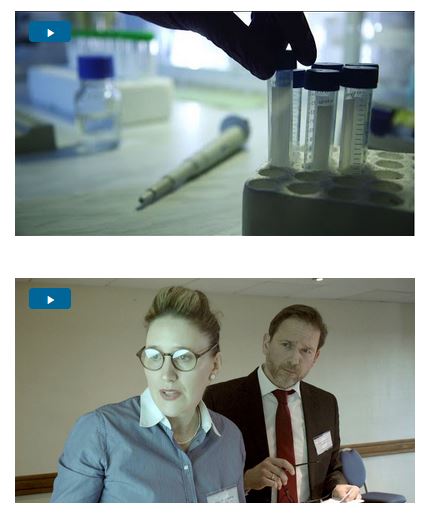Where does "good scientific practice" come from, and why is it so important to safeguard it not only for all university staff but also for all students? – The lecture gives an overview...
- of the forms of quality assurance of scientific work (such as codes of conduct, written affirmations – affidavits or declarations on oath, plagiarism software checks, use of stylometric software, double blind peer review, open commentaries, Science Watch blogs and platforms, whistleblowers, open data, open access, ethics committees, good laboratory practice – GLP, ombudspersons for good scientific practice, institutions such as the Austrian Academy of Sciences, etc.)
- as well as of the forms of scientific misconduct (such as plagiarism, ghost writing, ghost coding, unethical authorship, collusion, data manipulation, data fabrication, sabotage, doctoral placement, false statements in CVs, title fraud, false reputation damage)
- and their grey areas (the so-called Questionable Research Practices/QRPs such as p-Hacking or HARKing).
A focus is also on the possibilities for self-testing for students (for example with Scribbr or PlagScan).
The topics securing good scientific practice, scientific misconduct and the grey area of QRPs should at least be illuminated... 
- historically,
- legally, and
- ethically.
We will also ask ourselves how citation cartels, rope teams, bullying, job corruption and career obstruction could be classified.
Current discussions on academic hoaxes, fake science, predatory journals or replication crisis will enrich the lecture.
The focus on academic honesty within the framework of a separate lecture reacts to the changed framework conditions for academic studies such as:
- Medialization/digitization and the resulting changes in reading and writing habits and skills
- Virtualisation of teaching through eLearning
- Shortening of studies and "schooling" through the Bologna process
- "Academic capitalism"/general economization, rationalization and increasing purpose-orientation of studies
- Medialization of prominent plagiarism cases and
- new scientific irrationalisms such as climate change denial or anti-vaccination
This is the first interfaculty lecture of this kind in Austria. Federal German medical courses have recently introduced a corresponding course as a compulsory subject - especially for the quality assurance of medical dissertations.
On both days, additional interactive elements such as live votings and multimedia components such as online courses, short films and podcasts will loosen up the course. Each semester, we will discuss a current example of scientific misconduct in the context of a short assessment.
Literature:
Main document: TU Wien (2007): Code of Conduct – Regeln zur Sicherung guter wissenschaftlicher Praxis
TU Wien (2020): Website des Arbeitsschwerpunkts GWP – Gute wissenschaftliche Praxis (with further manuals)
Bundesministerium für Bildung, Wissenschaft und Forschung (2020): Praxisleitfaden für Integrität und Ethik in der Wissenschaft
IHS/WIFO (2020): Memorandum of Understanding – Prinzipien der wissenschaftlichen Integrität für Auftragsstudien
Österreichische Agentur für wissenschaftliche Integrität – ÖAWI (Neugestaltung 2019, Stand 2015): Richtlinien der Österreichischen Agentur für wissenschaftliche Integrität zur Guten Wissenschaftlichen Praxis
Deutsche Forschungsgemeinschaft – DFG (2019): Leitlinien zur Sicherung guter wissenschaftlicher Praxis – Kodex
ALLEA (Revised Version 2017): The European Code of Conduct for Research Integrity
Deutsche Forschungsgemeinschaft – DFG (Zweite Auflage 2013, erste Auflage 1998): Denkschrift „Sicherung guter wissenschaftlicher Praxis“, Wiley-VCH/DFG
European Science Foundation – ESF/ALLEA (2011): The European Code of Conduct for Research Integrity
Singapore Statement on Research Integrity (2010)
Photo credits: Word Cloud S.W., 2019; Screenshots from YouTube-Uploads on the TUWEL-course of the lecture
LIVE-LECTURE VIA ZOOM – the Zoom links for both days are published in the TUWEL course!
No exam-immanent course, therefore no attendance obligation for you!
Case studies, software demonstrations, quality checks of concrete scientific theses, podcasts, short videos, interactive live surveys with the live voting tool "Mentimeter", external guest lecture (TU staff member Adi Krpo MEng., contract cheating detection software TransparencyWise), possibly students' own short lecture inputs. All material will be available after the seminar in TUWEL, including all streams.
TAKE HOME EXAM
Please download the exam questions and further files related to the exam from the TUWEL course of the concerned semester. Download is possible after start of the exam. The prerequisite for this is that you are registered for the course at all. Only then will you have access to the TUWEL course!
Unauthorised tools are: Lecture notes and summaries of other students as well as the involvement of other persons including the cooperation of students of the VO. Each submission must represent a recognisably 100% individual achievement.
All fees are checked for plagiarism with the Turnitin software and thus compared with each other for parallels!
Only the written examination is evaluated; however, students can improve their grades with their own input during the VO (possibly small case studies) and cooperation.